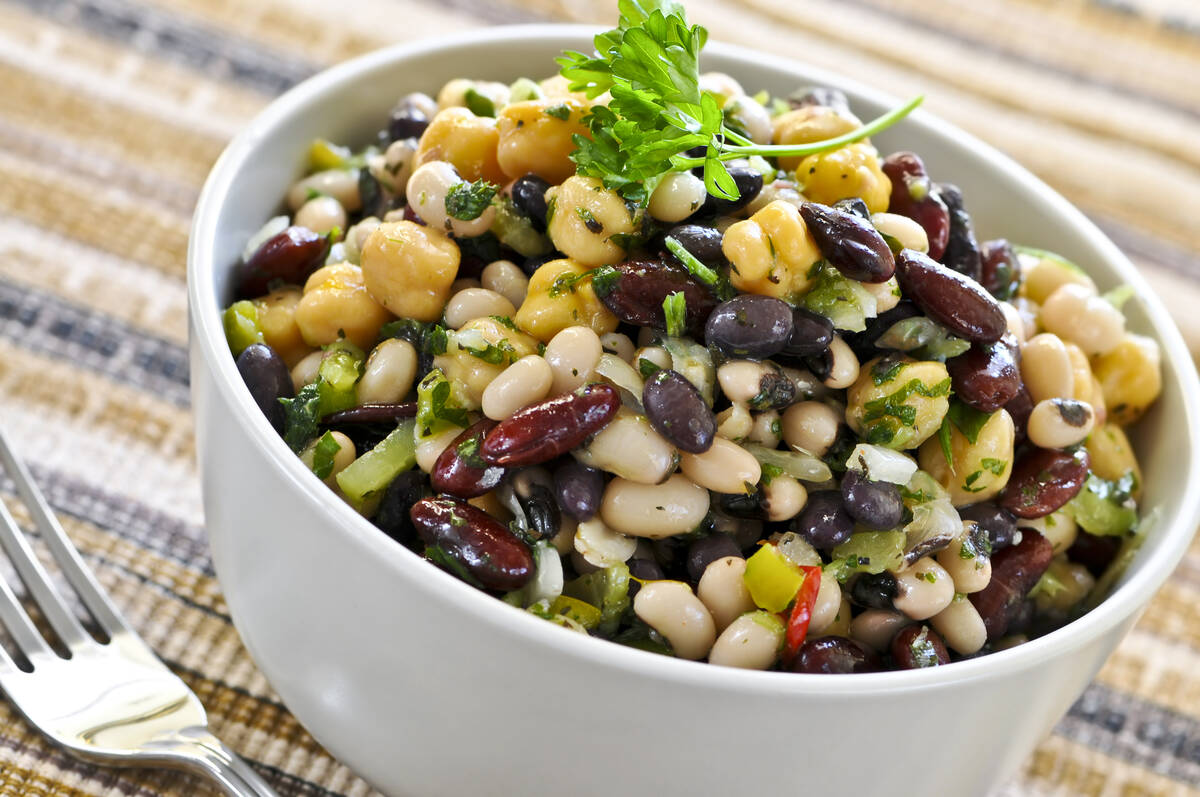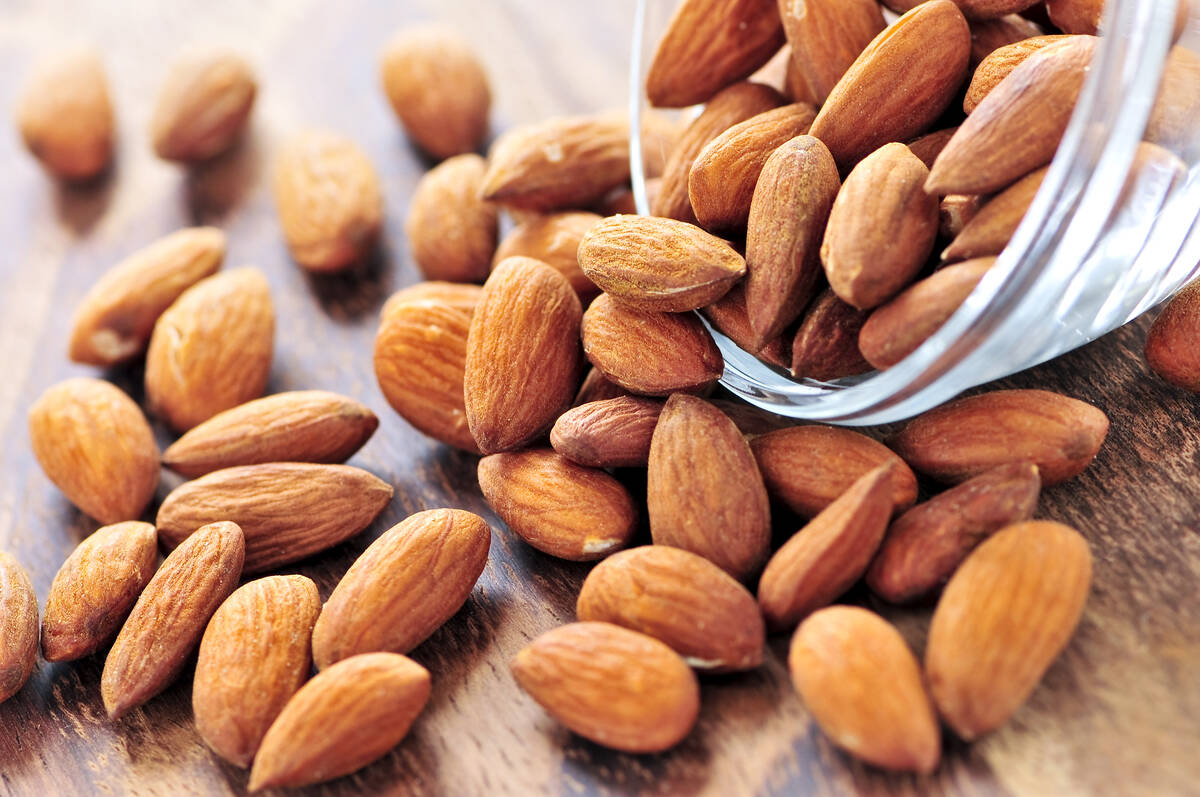This simple dietary swap can slash risk of heart disease
Bacon, pepperoni and hot dogs may satisfy your taste buds, but they also increase your risk for chronic diseases. New research shows that swapping animal-based processed foods for plant-based options could slash your likelihood of developing diabetes and heart disease.
The review, published in the BMC Medicine journal, analyzed the results from 37 previous studies highlighting the advantages of incorporating more plant-based foods in the diet. Participants saw a 27 percent reduced risk of heart disease when they swapped just 50 grams, less than 2 ounces, of daily processed meat with nuts. They had a 23 percent reduced risk when the processed meat was switched with legumes, such as black beans or chickpeas.
Substituting olive oil for butter, legumes and nuts for eggs, and nuts and whole grains for red meat also lowered the risk of all-cause mortality. However, replacing fish, seafood or poultry had no clear association with reducing risk.
“These results align with what we currently know about the benefits of plant-predominant diets,” registered dietitian Whitney English says. “A plant-rich diet low in red and processed meats is the consensus from most government and health organizations. While this review gives more confidence to previous studies, it builds on what we already know — more plants, more positive health outcomes.”
The 2020-2025 Dietary Guidelines for Americans emphasize consuming a variety of vegetables, fruits, whole grains, fat-free or low-fat dairy, oils, legumes, lean meats and limiting added sugars, saturated fats and sodium.
Similarly, the World Health Organization recommends eating a diversity of whole foods primarily from plant sources such as fruits, vegetables, whole grains, nuts, seeds and legumes. It advises moderating meat intake to less processed options and limiting processed and sugary foods, refined carbs, unhealthy fats, and salt.
Opting for plant-based foods
This new research is the first systematic review and meta-analysis that looked at the association between replacing animal-based foods with plant-based options with a wide range of cardiometabolic outcomes, such as death and occurrence from cardiovascular disease and Type 2 diabetes.
“The results show that eating less butter and processed meats, with more nuts, legumes and whole grains is beneficially associated with cardiometabolic health.” English says. “That means cooking instead with olive oil, snacking on pecans instead of beef jerky or enjoying lentil soup more frequently than a bacon burger to lower risk.”
Olive oil has far less saturated fat than butter, containing primarily monounsaturated fats, so it has a healthier fat profile. High levels of saturated fat in the diet are associated with higher cholesterol levels, which increase the risk of heart disease and stroke.
The American Heart Association recommends keeping saturated fat intake to less than 6 percent of total calories, or about 13 grams in a typical 2,000-calorie diet. For comparison, a tablespoon of butter contains 7 grams of saturated fat.
Legumes, such as beans, soy foods and lentils, are consistently shown to improve cardiovascular outcomes if consumed as meat alternatives. Legumes are rich in protein, like animal-based foods, but also contain fiber, a nutrient found only in plant foods that can lower harmful LDL cholesterol and improve gut health. Try them to replace your favorite ground beef recipes, such as lentil tacos, bean chili or chickpea burgers.
Only 5 percent of adults in the United States meet the Institute of Medicine’s recommended daily fiber intake of 25 grams for women and 38 grams for men. Increasing total fiber intake by just 7 grams per day has been shown to reduce the risk of cardiovascular disease by 9 percent.
Snacking on heart-healthy nuts, such as walnuts and almonds, may also decrease the risk of heart disease. Walnuts are exceptionally high in omega-3 fatty acids, with an impressive 2.5 grams per ounce. English adds, “Eating walnuts often, especially as a replacement for ultra-processed and saturated-fat rich snacks, is associated with lower rates of cardiovascular disease and death.”
What about plant-based meats?
If consuming more plant-based foods over animal foods is beneficial for cardiovascular disease, what about the increasing availability of convenient plant-based options, such as Beyond Meat or Impossible?
The SWAP MEAT trial, from the Stanford School of Medicine, compared consumption of Beyond Meat’s chicken, beef and pork to organic, animal-based versions of the same products. Participants were asked to consume two or more servings of plant- or animal-based meat daily for eight weeks while keeping the rest of their diet the same.
When consuming plant-based meat products over the organic animal-based options, participants saw statistically significant reductions in weight and cardiovascular disease markers, such as LDL cholesterol.
While the levels of protein and sodium were similar in both diets, fiber consumption was higher and saturated fat was lower when eating the plant-based versions.
“Given what we know about dietary patterns and cardiovascular disease outcomes, it’s not surprising that reducing intake of saturated fat and cholesterol had positive outcomes,” English notes. “However, given that there are still some questions on the healthfulness of these plant-based alternatives, it’s helpful to show that these options are likely better than their animal-based counterparts.”















